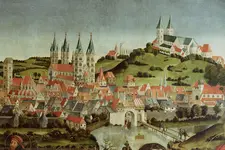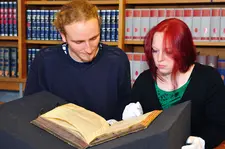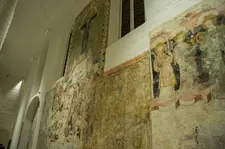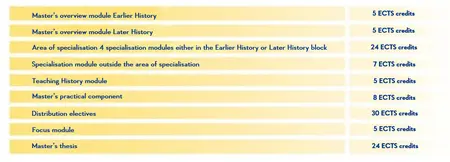Programme Profile




The Bamberg master’s degree programme in History offers you the opportunity to develop your own academic profile in the field of history and thereby acquire the necessary skills for an academic career or for the various specific requirements of non-university professions.
You can draw from the entire range of classes offered by the institute. The chairs of Ancient History,Medieval History, Modern History, andModern and Contemporary History cover the whole breadth of history from antiquity until the modern age. The professorships in the History and Culture of Late Antiquity, the History of Economics and Innovation and Economic and Social History with Special Emphasis on Labour and Education explore history under the respective lenses of their subject areas. The chairs of the Auxiliary Sciences of History and Digital History teach the necessary methods for indexing historical material, while the professorship of Didactics of History deals with topics related to teaching history and a culture of remembrance. Spatial orientation is provided in the field of regional history, which is taught with an integrated approach by the chairs that focus on particular time periods and the Institute for Franconian Regional History.
Individual fields of knowledge are connected through comparative and interdisciplinary work across historical periods, drawing on neighbouring disciplines. Cooperations with institutions abroad and in the region enrich this broad spectrum of subjects. You can select your own classes individually from this wide range.
Programme structure
The programme structure allows for both an overview of the complete historical spectrum and the acquisition of in-depth knowledge in a self-selected specialisation area. To this end, students in the programme select a period to focus on in their area of specialisation (the Earlier History block that includes the ancient and medieval periods, or the Later History block that covers the early modern and modern periods). Within the historical block that they are specialising in, students may freely combine classes from any of the content-relevant subdisciplines. The master’s thesis is also written in the area of specialisation, meaning that around half of all points are obtained in this area.
It is obligatory to complete two modules in the respective historical block that students are not specialising in to ensure the master’s programme covers the whole breadth of the subject’s content. Two modules in the fields of theory/methodology and didactics focus on historical work and educational practice in this discipline. In the practical component, field trips and a mandatory internship mean that concrete forms of historical work and work in professional fields for historians are integrated into the degree programme and contact is established with potential employers.
Covering a quarter of all ECTS points, the distribution elective component provides students with a broad scope to acquire or consolidate key skills in other disciplines of their choice (e.g. in relevant neighbouring disciplines such as Art History, Archaeology, Catholic and Protestant Theology, Jewish Studies, Oriental Studies) or in practical foreign language courses. It is also possible to earn further points within the field of history.
In short, the Bamberg master’s degree programme in History gives students the freedom to put together their studies in a largely independent way so that they are most conducive to the career path they wish to pursue. This means it’s up to them how they build on the qualifications imparted in the programme.
If students have the opportunity to start working or to carry out a research visit during their studies, it is possible to switch to part-time studies.
Module overview
Modules | ECTS points |
Master’s overview module Earlier History | 5 |
Master’s overview module Later History | 5 |
Area of specialisation | 24 |
Specialisation module outside the area of specialisation | 7 |
Teaching History module | 5 |
Application module | 8 |
Distribution electives | 30 |
Immersion module | 5 |
Master’s thesis | 24 |
